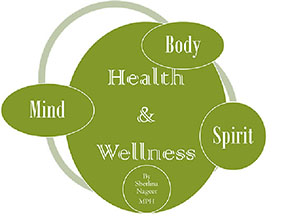Healthy food, exercise, regular check-ups, rest, not smoking or overindulging with alcohol – ask most people the keys to good health and these will be their answers. However, in addition to these well-known standards, there is one other thing that is crucial to our well-being and that is being connected to and part of a community or social group. Yes, research has actually shown that social connectedness has a real, significant impact on our health- both physically and emotionally.
Being lonely and isolated was found to be as bad for a person’s health as smoking 15 cigarettes a day, being an alcoholic, and not exercising. It was twice as bad for one’s health as being obese. Extreme loneliness was found to increase the chance of premature death by 14%, while strong social connection increased longevity by as much as 50%. Feeling isolated from others can disrupt sleep, raise blood pressure and stress hormones, increase depression, and affect how well the immune system responds. On the flip side, people with strong social connections were found to have a lower risk of mental illness, less stress-related health problems, and to recover faster from trauma or sickness.
 Intuitively this makes sense; after all, human beings, like many other animals, are social creatures. We evolved to live in communal groups and a great deal of our sense of self and well-being comes from our relationships and interactions with each other. Realizing that social connectedness has real impacts on our physical health, as well as our emotional wellness is critical, especially in societies like ours in Guyana where divisiveness sometimes rears its ugly head too often (especially at election time like we’ve just experienced).
Intuitively this makes sense; after all, human beings, like many other animals, are social creatures. We evolved to live in communal groups and a great deal of our sense of self and well-being comes from our relationships and interactions with each other. Realizing that social connectedness has real impacts on our physical health, as well as our emotional wellness is critical, especially in societies like ours in Guyana where divisiveness sometimes rears its ugly head too often (especially at election time like we’ve just experienced).
Being social is not easy for everyone (as someone who often prefers my own company over others, I understand this very well). However we need to feel connected with each other. Aside from the benefits to our own physical and mental health described above, the larger community also benefits when we come together with each other. A community that is closely-knit is better able to protect and safeguard its weak and vulnerable members – children, the elderly and those who physically, mentally, socially and economically challenged. By nurturing close relationships with one another, we become more able to build trust and stronger, healthier, more resilient communities, better at withstanding and recovering from dangers.
In Guyana, a country below sea level, facing the constant risk of flooding, we live daily with the threat of environmental devastation. While those in the hinterland areas would be more protected, the majority of Guyanese live on the coastland and we are therefore mostly all in the same boat. Sure, those with more money and resources may be somewhat better off, in the short term, than others less economically advantaged, but the fact is that much of the wealth of the rich comes from the labour of the poor so in the long run, our well-being is inextricably linked. Obvious and undeniable though these observations are, they are often overlooked.
I wished to make these points in this, my first column post-election, simply to remind you, my fellow Guyanese, that no matter who wins or loses at the polls, whether it was ‘your’ party or not, our destiny is intertwined and our survival best assured by living and working together harmoniously. It is not easy to do, I know. Differences can sometimes seem insurmountable; the ‘other’ alien and frightening. Often, we are manipulated into believing that superficial differences such as the colour of our skin, texture of our hair and other physical attributes, the amount of money and material goods in our possession, and who and how we love should mean more than the fact that we all bleed the same when cut, need clean air to breathe, uncontaminated water to drink, unpolluted soil to grow food, desire to be loved and cared for, and that we shall all, without exception, die one day.
While there are indeed significant variations in cultural practices among people and some real genetic differences between groups (with some illnesses affecting certain populations more than others – sickle cell anaemia, for example), the fact is that our similarities far outnumber our differences. The fact is that all human beings share common ancestors, and that many of our differences are simply a result of the different environments in which we grow and develop.
That our environments play a huge and very significant role in shaping our beliefs and behaviours is a crucial fact for us to understand. Environments that foster divisiveness and enmity between different groups, and that do not encourage connections and bonding are fundamentally unhealthy and dangerous to our overall well-being. We must realize, remember, and resist this manipulation, and work together to create communities of people who are not afraid of the differences between themselves, and who understand the strength that comes from bonding with one other.
We must resist the urge to isolate or segregate ourselves. We must challenge ourselves to push against and through the fears that we have been conditioned to feel about different others. We must not sacrifice meaningful connections with others at the altar of economic wealth or success. We must teach the youth to embrace diversity in all aspects of life and we must create social systems and infrastructures that protect and enhance equal access and treatment, human rights, and justice. Our very happiness and existence depends on this.
Building social connections, even for introverts, is not too difficult a task. One does not need a multitude of friends; rather it is the quality of the bond that matters. Engaging with others can simply mean doing what you enjoy with others who share your interest (while remembering to encourage and explore differences as well). We must come out from behind our computers and meet in person. We must build and reclaim vital public spaces. Remember we have the power to shape our environments and mold our destiny. By nurturing close relationships and communities, we will live longer, happier, healthier lives individually and collectively.







